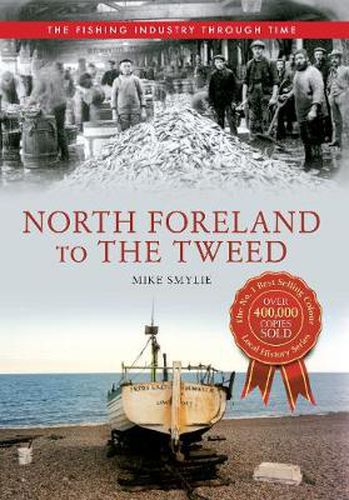Readings Newsletter
Become a Readings Member to make your shopping experience even easier.
Sign in or sign up for free!
You’re not far away from qualifying for FREE standard shipping within Australia
You’ve qualified for FREE standard shipping within Australia
The cart is loading…






Since Britain joined the European Economic Community in the mid-1970s, the fishing industry along our coasts has been under pressure from overfishing. Mike Smylie takes us on a tour of England’s North Sea coast, taking the reader to harbours that you could once walk over on the hundreds of fishing boats, and to east coast beaches and rivers that boasted their own fishing fleets.
Each area of the coast had its unique boats, built for local conditions, as well as methods of catching the fish. From North Foreland on Kent’s Isle of Thanet to the River Tweed, Mike Smylie shows us the fishermen and women on shore and at sea, their boats, and the harbours, and tells us of the methods used to catch fish. He also documents the changes in and decline of the industry, from the times when it employed hundreds of thousands of working people.
$9.00 standard shipping within Australia
FREE standard shipping within Australia for orders over $100.00
Express & International shipping calculated at checkout
Since Britain joined the European Economic Community in the mid-1970s, the fishing industry along our coasts has been under pressure from overfishing. Mike Smylie takes us on a tour of England’s North Sea coast, taking the reader to harbours that you could once walk over on the hundreds of fishing boats, and to east coast beaches and rivers that boasted their own fishing fleets.
Each area of the coast had its unique boats, built for local conditions, as well as methods of catching the fish. From North Foreland on Kent’s Isle of Thanet to the River Tweed, Mike Smylie shows us the fishermen and women on shore and at sea, their boats, and the harbours, and tells us of the methods used to catch fish. He also documents the changes in and decline of the industry, from the times when it employed hundreds of thousands of working people.